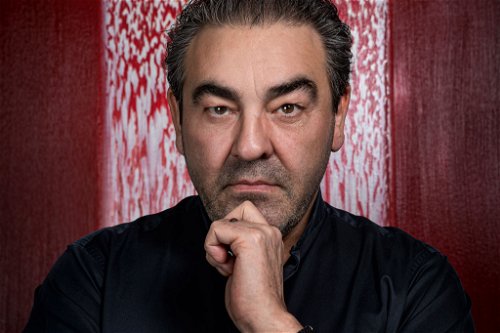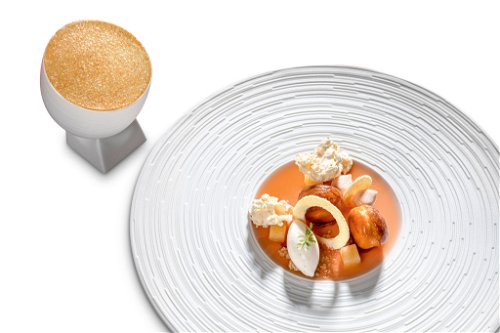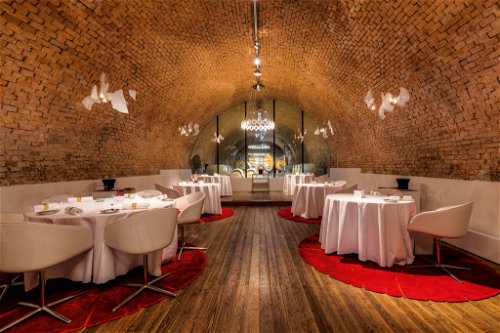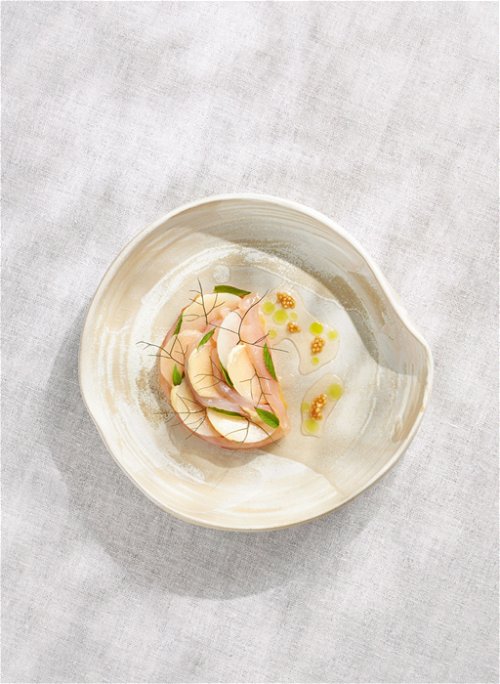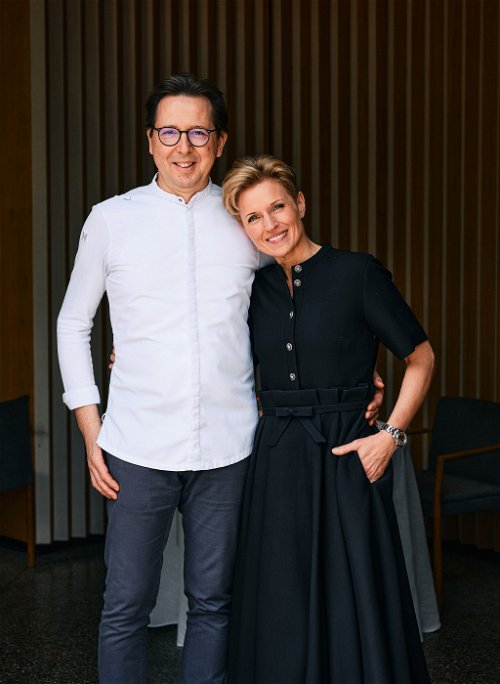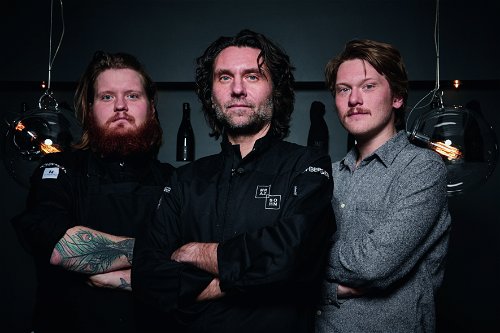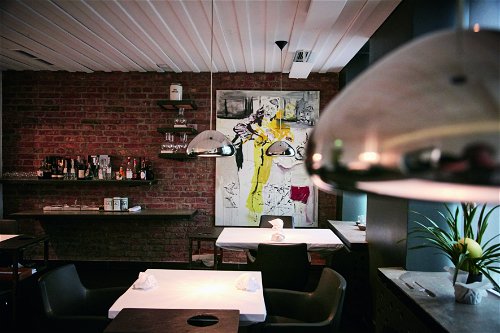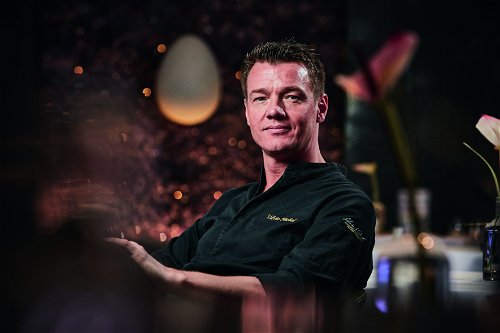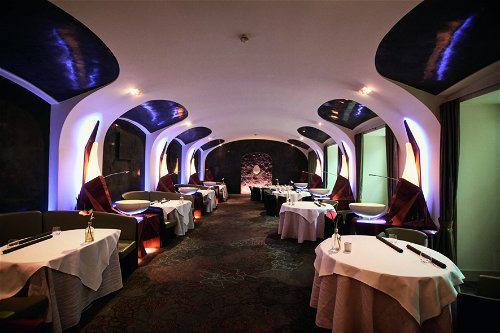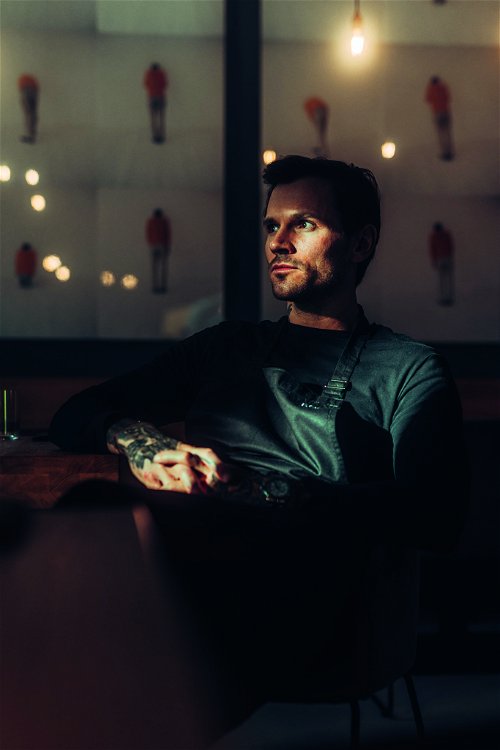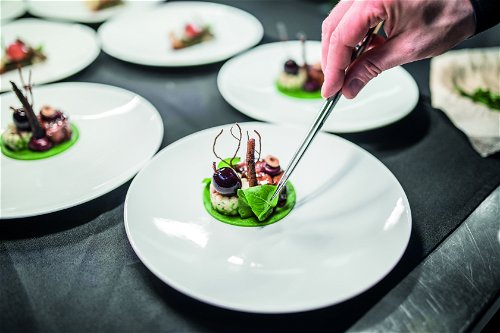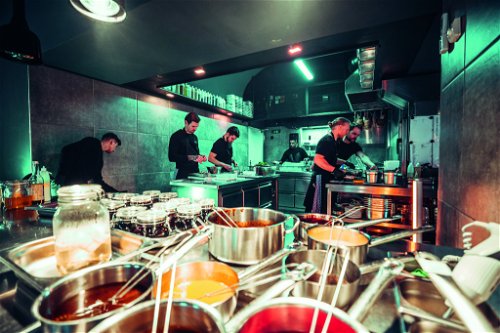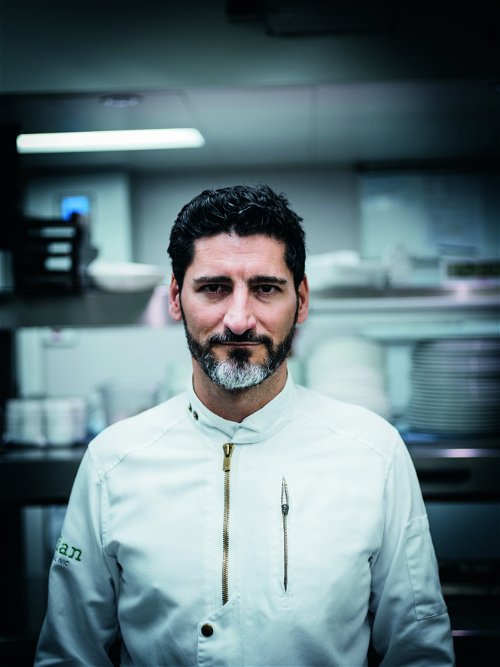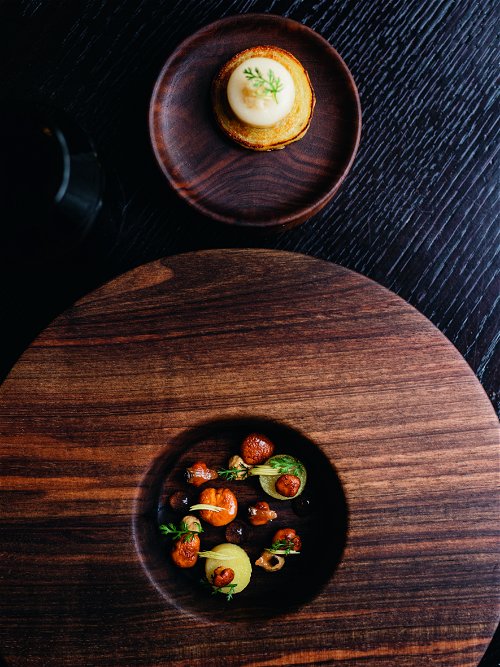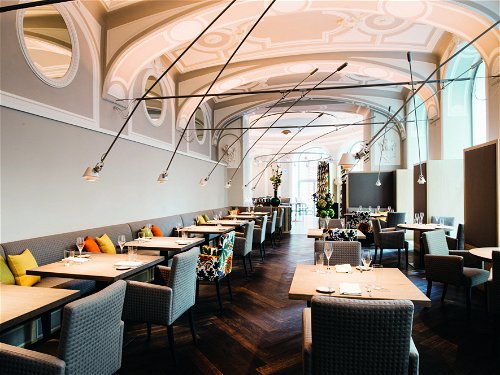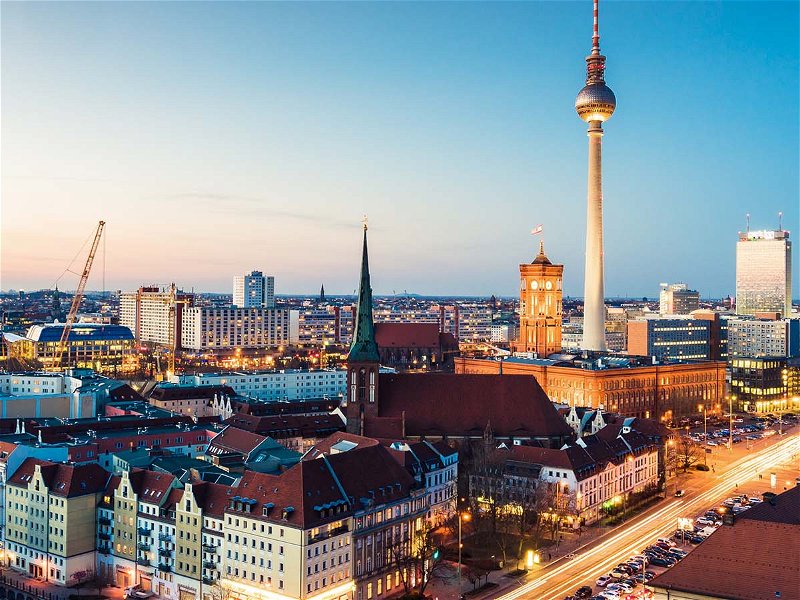Summit strikers: Vienna's casual luxury restaurants
As befits a modern metropolis, Vienna's culinary scene is now pleasingly colorful and diverse. This also applies to the luxury class: the spectrum here ranges from established stars in the gastronomic firmament to young styles and top international kitchens.
At the beginning of the year, a murmur went through the international culinary world, and more than a few gourmets around the globe must have shed a few tears: René Redzepi, mastermind behind "Noma" and co- founder of the much-praised new Nordic cuisine, announced the imminent demise of the legendary gourmet temple. If even the highly decorated restaurant in Copenhagen has to close, the tenor of things is likely to be bad for top gastronomy. But Redzepi's ingenuity is not to be wasted; he wants to continue to run "Noma" as a test kitchen and experimental laboratory after its last season in winter 2023/24, where he will continue to work on reinventing the principle of cooking. What's more, you don't have to look far for proof that, despite all the hurdles, Michelin-starred cuisine is alive and kicking, and not only in Vienna.
However, the closure of the establishment, which has been named the best restaurant in the world several times, undoubtedly shows this: the air at the pinnacle of good taste is not only thin, but also in constant flux. Anyone who makes it to the top and wants to defend this position in the long term therefore needs the right amount of flexibility, creativity and courage in addition to the necessary know-how.
Head-to-head race
There are several places in the German capital where you can see for yourself that this formula works; as many as 16 Michelin stars are currently spread across ten restaurants, and these in turn are located all over the city.
The long-standing leader is not to be found a primary city centre location, but outside in the 19th district. A few years ago, Juan Amador took up residence near the northern city limits; with the change from pub and grocery store to the eponymous fine dining restaurant, he also made the leap to the top. In the vaulted cellar the landlord has since been serving up all the luxury products the world has to offer, using both the molecular bag of tricks and the classic textbook. However, the fact that the country's highest culinary award did not go to another address - as everyone expected - is still a point of contention among connoisseurs today, as the exceptional German-Spanish chef has been going head-to-head with a genuine Viennese institution in the eyes of discerning gourmets for some time now.
Without a doubt, the "Steirereck" in the Stadtpark wins when it comes to central location and (public) accessibility; everything else is a matter of taste. And that's a good thing - after all, competition stimulates business. One way or another, Birgit and Heinz Reitbauer 's restaurant has been THE flagship of top Austrian gastronomy for years, and not without good reason. Because you really have to love everything about the "Steirereck": the service is attentive, approachable and always with the right mix of presence and attention, and restraint.
The modern architecture with its niches is both spacious and private, and the cuisine is simply fabulous, and not just because of the focus on regional produce of the highest quality, some of which is only minimally known. Gimmicks such as cheese and bread trolleys with their dizzying selection are just the icing on the cake of perfection.
Casual luxury
Elsewhere in the city, meanwhile, people are showing that luxurious cuisine also works in a more informal setting. Particularly impressive proof of this can be found in an inconspicuous corner house in the former working-class district of Brigittenau in Vienna. For several years now, the "Mraz & Sohn" has been offering an unbroken combination of fine dining and relaxed serenity. A perfect symbiosis, at least when you have mastered both at such a high level. When you enter the restaurant, which was stylishly refurbished last year, you are practically standing in the middle of the kitchen and are then accompanied through the evening by the pleasantly amicable nonchalance of the service.
Manuel Mraz, one of the sons and the main person responsible for the informal, cool atmosphere, may have left for new shores in the spring, but thankfully there are still plenty of people in the kitchen. Markus and Lukas Mraz are at the helm and they disregard conventions as much as expectations, and yet they are convincing all along the line.
Only the "aend" is a kindred spirit in terms of style and low-threshold, which meet high culinary art. Although the German Fabian Günzel 's culinary socialisation in the classical French school is sometimes subtly noticeable, taste judgments such as avant-garde and purism are - in the best sense - also quite apt. Both keywords also apply to the wine selection, as Günzel didn't come from just anywhere: he was once sous-chef at Silvio Nickol' s gourmet restaurant in the Palais Coburg, which in turn is notorious for its legendary wine cellar. There are around 5,000 items in the wine list of this elegant and stately establishment, and the kitchen produces remarkably well thought-out creations that are hard to rival in terms of quality and execution, and which, just like the wines, are at home in thoroughly international climes.
Once around the world
As much freedom as the sometimes broadly defined catchphrase "international cuisine" offers, there are advantages to committing to a specific direction for the cuisine. In other words, even in the luxury culinary segment, you sometimes want to know what to expect - at least in theory. Paul Ivić 's "Tian" has been demonstrating for over a decade just how far apart imagination and reality often are.
You still have to be the master of a vegetarian cuisine. This is a good way of countering certain resentments that come from the "Does it even taste good?" But it's not for nothing that "Tian" is one of a select handful of restaurants that, despite the complete absence of meat and fish, can succeed even among the most experienced gourmets - namely worldwide. After the first course, guests understand why this is the case, and sometimes longingly wish that meat-based cuisine could be served with similar density and complexity. Whatever is in season is served, whether it's spring classics such as wild garlic and asparagus, delicacies from summer forests and meadows or the earthy notes of winter vegetables. If you end up missing animal protein, you can hardly be helped.
Fans of Asian cuisine, on the other hand, make a pilgrimage just a few streets away, and a noticeably international crowd of diners follow their example. Their destination is in the heart of the 1st district: with his "Shiki", Tokyo-born musician Joji Hattori shows that his home country can do much more than just sushi - even if the sushi, prepared à la minute in the chic downtown restaurant at the sushi bar, is also of awe-inspiringly good quality.
The second hobbyhorse here is called Japanese Fine Dining and is a fusion cuisine of the very highest quality, somewhere between Japan and Austria, which is implemented by the two (Austrian) chefs with captivating ease. Although the wine list is also impressive, sake is an excellent accompaniment to the complex flavours of the menu - or the fiery spiciness of real wasabi - and is available in a wide variety and, if desired, in combination with some specialist knowledge.
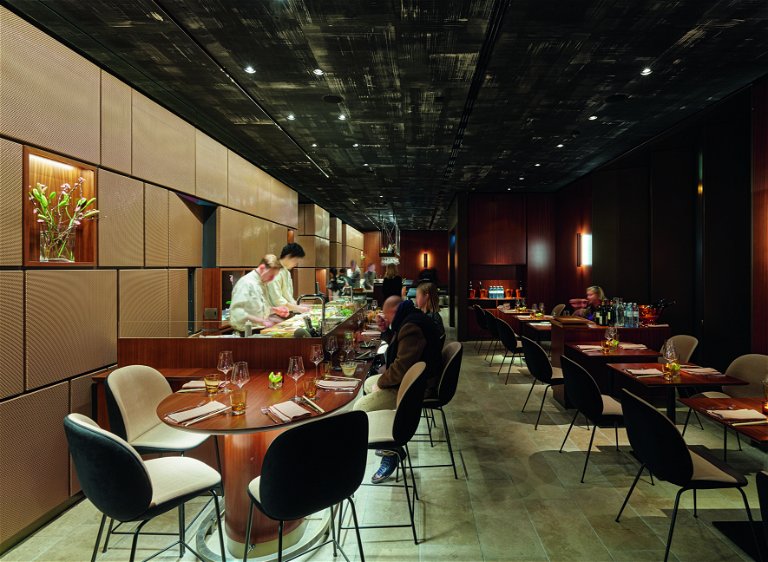
On the other side of the world, Italy is also the Austrians' favourite culinary getaway. The fact that the number of really good Italian restaurants in the city is still manageable is a mystery in itself. Because "Fabios" shows how it's done. Although it is true that many guests do not come primarily for the fine Italian cuisine, but to mingle with the who's who of the Seitenblicke society present, this does Fabio Giacobello's recently even more stylishly designed restaurant an injustice.
Head chef Christoph Brunnhuber serves up both classic and innovative dishes, turning to the modern with a light touch, yet never forgetting the Mediterranean basis. Together with his colleagues scattered across Vienna, he forms an illustrious team of creative minds who guide their guests with a light hand to where the food tastes best. Right at the top.

